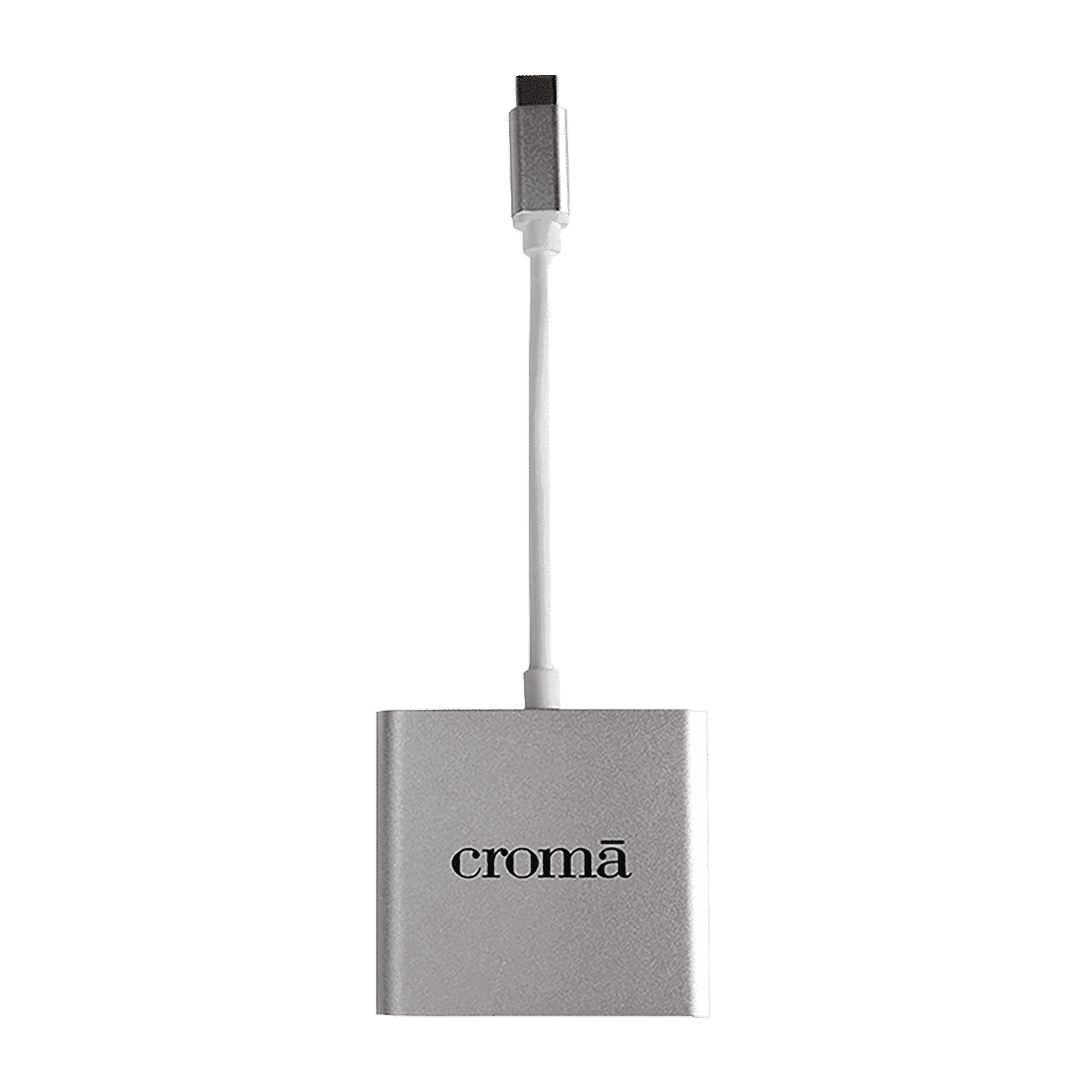%20(Presentation)%20(1600%20x%20600%20px)(104)-e7981044-6d08-4425-b3f9-f97c6bfbc443.webp&w=3840&q=75)
Consumer Electronics
•03 min read

Buy Croma USB 3.0 Type C to USB 2.0 Type A, USB 3.0 Type C, HDMI Type A USB Hub (High-Quality Material, Silver) online at best prices from Croma. Check product details, reviews & more. Shop now!
USB connectors are the unsung heroes of modern electronics, effortlessly linking our smartphones, laptops, cameras, gaming consoles and more. While the concept might seem simple, understanding what a USB connector is and how it works can help you work seamlessly across your devices. In this checklist, we delve into the various types of USB connectors, exploring their uses, features, and compatibility to empower you with essential knowledge.
A USB connector is a standard interface for linking devices and enabling data transfer and power delivery. Its primary role is to facilitate communication between hardware components, ensuring that your electronic devices work together harmoniously. Whether you are transferring files or powering up a device, the design of these connectors plays a crucial role in modern-day connectivity.
USB connectors operate by establishing connections through designated ports on your devices. These ports are designed to support the flow of data and electricity safely and efficiently. In essence, they form the bridge that allows your computer, smartphone or any other gadget to interact with peripheral devices like external drives or keyboards. Understanding this connection helps you appreciate how our devices keep in sync and perform under various uses.
There are several types of USB connectors available, each designed to meet specific requirements. The common categories include:
USB-A: The traditional rectangular connector found on many devices.
USB-B: Typically found on peripherals like printers.
Micro USB: A smaller connector that was once standard in mobile devices.
Mini USB: A compact version used in some older gadgets.
USB-C: The modern, reversible connector noted for its speed and efficiency.
Each connector type is built with ease of use in mind, making it easier than ever to identify and match them with your device needs.
The differences between these connectors often lie in their size, data transfer speeds, and compatibility. For instance, USB-C is renowned for its high-speed capabilities and reversible design, making it a favourite in today’s technology-driven world. Visual cues, such as the shape and size of the connector, can be very helpful for immediate recognition and ensuring that you match the right connector with your device.

Buy Croma USB 3.0 Type C to USB 3.0 Type C, USB 3.0 Type A, RJ45, HDMI Type A Multi-Port Hub (5 Gbps Data Transfer Rate, Grey) online at best prices from Croma. Check product details, reviews & more. Shop now!
USB connectors have a wide range of applications across various consumer electronics. They are indispensable in linking smart devices like smartphones and tablets to chargers and computers. Not only do they provide reliable power delivery, but they also support data synchronisation and peripheral connectivity in devices such as gaming consoles, TVs, and cameras. Their versatility extends to specialised uses, where USB connectors are integral to charging hubs and even certain industrial applications.
The enhanced features of USB connectors include improved data transfer speeds and robust power delivery capabilities. Their scalability is a significant benefit, as more advanced connectors like USB-C can handle higher energy loads, making them ideal for demanding tech tasks. These features help ensure that your devices operate at peak performance, aligning well with the quality and reliability expected by users of trusted platforms.
Ensuring compatibility between devices and connectors is pivotal. When checking compatibility, keep in mind that many USB connectors are designed with backward compatibility in mind. For instance, USB 3.0 devices often work with USB 2.0 ports although certain limitations may apply, such as reduced data speeds. It is always recommended to refer to device specifications to confirm the correct match, so that your experience remains smooth and trouble-free.
Insight Corner: Did You Know? USB connectors are designed following universal standards, but it is always wise to check the specifications of each device. Mismatched connectors can lead to slower speeds or failed connections, so a little attention goes a long way in ensuring optimal performance.
USB connectors are used to connect devices for data transfer, power supply, and communication between various hardware components.
They come in different shapes and sizes such as the rectangular USB-A, square USB-B, and the more modern and sleek USB-C connector.
Common types include USB-A, USB-B, Micro USB, Mini USB, and USB-C, each offering unique features tailored to specific applications.
You can identify your connector by looking at its physical shape and size, or by consulting your device’s manual for more detailed specifications.
Yes, many USB connectors are universally compatible, but it’s essential to verify that your device supports the specific connector type and standard for best performance.
USB connectors are the backbone of modern technology, seamlessly enabling connectivity across countless devices. Whether you are troubleshooting, shopping for new gadgets, or simply curious about how these connectors enhance your tech experience, this checklist serves as a practical guide. With trusted platforms like Tata Neu offering easy access to reliable electronics, you can shop with confidence and even earn NeuCoins rewards on every transaction. Embrace the convenience of smart shopping and enjoy the enhanced benefits that come with well-thought-out technology solutions.